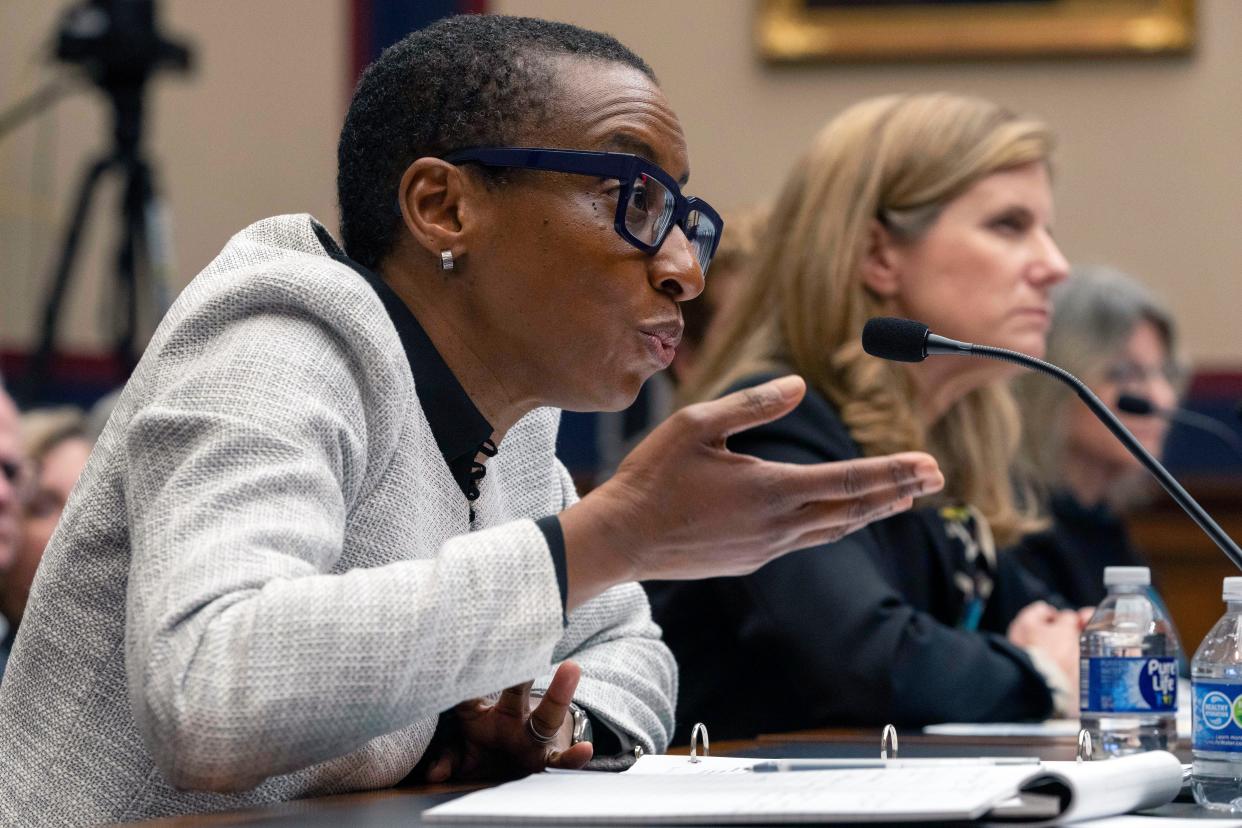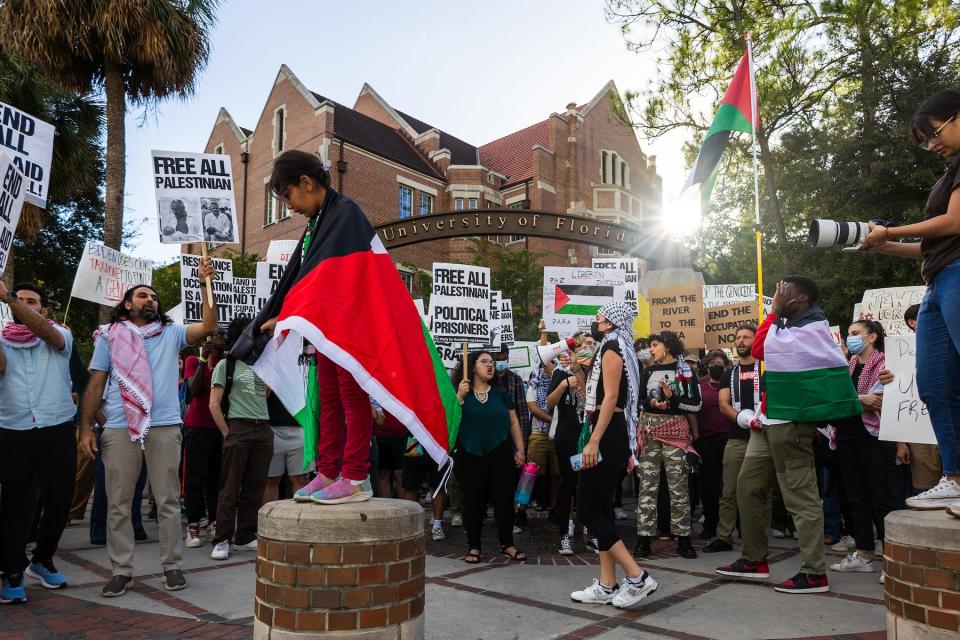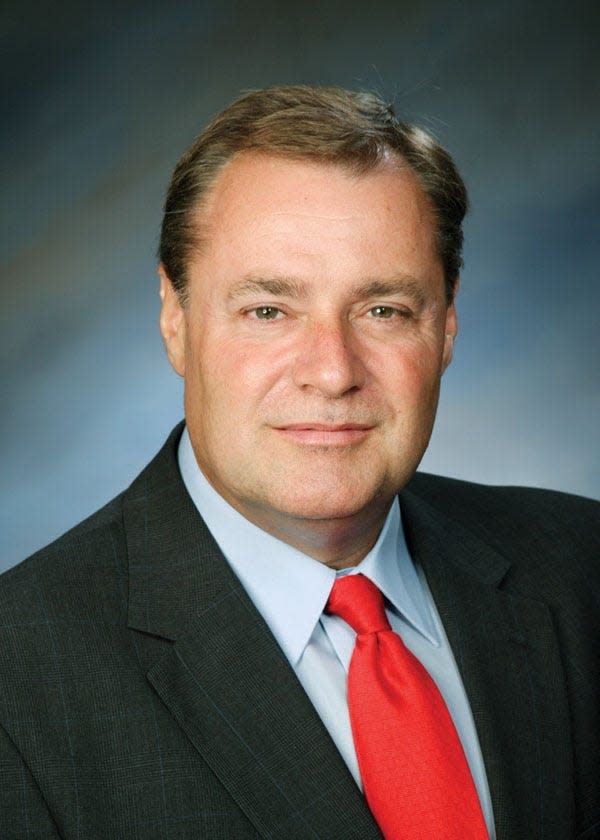Universities must create space where contentious, sometimes hurtful, discussions thrive

- Oops!Something went wrong.Please try again later.
In response to a sharp increase in antisemitism on college campuses following the Oct. 7 Hamas attack on Israel, the U.S. House of Representative Committee on Education and the Workforce conducted hearings on Dec. 5 about the safety of Israeli and Jewish students. In addition to students and others, the presidents of three distinguished U.S. universities − Harvard, Pennsylvania and Massachusetts Institute of Technology − testified. All three of them testified to a principal error. Their universities failed to follow a path of strict institutional neutrality with respect to current events, a policy pioneered by the University of Chicago in 1967 that has served it (and other schools that have adopted it) well.
The presidents’ testimony illustrated the pickle universities can find themselves in when they fail to remain neutral on controversial current events. Allowing themselves to be ambushed by U.S. Rep. Elise Stefanik, R-New York, the presidents were tone deaf to the horrors of the attack on Israelis, and to the welfare of their own students. Their testimonies were cold, measured and needlessly legalistic. The presidents waffled when asked how they were protecting their students from harassment and violence, frequently responding that it depended on "context." Most troubling, the presidents failed to defend, nonetheless educate about, the core mission of a university: to advance the discovery and dissemination of knowledge.
National Public Radio referred to the testimony as disastrous. Doug Emhoff, the "second gentleman" of the United States, characterized the presidents as exhibiting a "lack of moral clarity." The public, donors and elected officials reacted swiftly and disapprovingly, applying pressure that resulted in the resignation of the president of Penn and contributing to the resignation of Harvard’s president, who was also caught up in allegations of plagiarism.
Emhoff’s "lack of moral clarity" critique was apt but incomplete. The nation witnessed more than moral confusion from the presidents. The hearing revealed many uncomfortable truths about higher education. One is the increasing corporatization and consumerization of colleges.
For decades, particularly in state universities where state support, as a percentage of total expenses, has sharply declined, the scarcity of resources has caused higher education to behave like big business. And the business model has converted students from learners into customers; faculty from scholars into hired help; college presidents from leaders into managers; and donors, alumni and other external players into corporate directors. This change can be seen in the responses of colleges to controversial issues or events.
All too often, administrators and governing boards pander to the demands of their "customers." This was true of the trio of presidents who testified on Dec. 5. They ignored the threats presented by, and in some instances acceding to the demands of, their antisemitic and anti-Israel students and faculty.
Another truth, which is often fuel for anti-intellectual and conservative attacks on higher education, is that a progressive elitism is dominant on most college campuses. The data on the liberal bias in higher education is stunning, and largely uncontested. One researcher found, as self-reported by faculty, ratios of Democrats to Republicans of 44-to-1 in sociology, 48-to-1 in English, 70-to-1 in religion, and 108-to-0 in anthropology, communications and interdisciplinary studies. Consequently, most academic departments in the humanities and social sciences are without a conservative voice. A lesser skew was also found in the hard sciences and adjacent professional fields, where the ratios were 5-to-1 in chemistry, 6-to-1 in physics, and 2-to-1 in engineering.
Beyond ideological biases, faculty also see their role differently than in the past. In 2007, the first year the Higher Education Research Institute began collecting the data, 58% of faculty reported that one of their responsibilities was to encourage students to become agents of social change. By 2016, the last time the data was collected, that number had increased to 81%. This is hardly an incubator for intellectual diversity. It is no surprise that of the three institutions represented at the congressional hearing, two of them, Penn and Harvard, were ranked 247th and 248th out of 248 universities in their support for free expression by the Foundation of Individual Rights and Expression.
That’s right, two of the most prestigious universities in the United States, if not the world, were last and next to last in one of the most important aspects of a university’s mission. If they were students, their transcripts would bear grades of F-.
MIT’s standing is unknown, because it wasn’t included in the study. Although most faculty deny it, the ideological homogeneity of professors has a negative impact on teaching, research and student development. More broadly, I suggest that it has also contributed to the nation’s political polarization.

Put these factors into a pot, mix in the all-too-common appetite for virtue signaling, and what has resulted is a practice, now decades old, of colleges and academic units issuing missives about political and social issues. Most of these statements have expressed progressive ideas about race, policing, war and economics. Across the nation, professors who disagree with their institutions’ narratives have been ostracized, doxed, suspended, banned from campus and terminated by their institutions.
Liberals, historically champions of free speech, have silenced intellectuals who express views they find disagreeable. For example, attempts to approach issues of racial justice or COVID-19 policy in a scholarly manner, bringing nuance and evidence to these subjects, have ruined careers. But this problem isn’t entirely one-sided. In a minority of cases, "cancellations" have cut in the other direction. Recent attempts by a few colleges to suppress the speech of progressive pro-Palestinian students is an example.
The general tenor of campus life is well-known to the American people, and it forms an important context for understanding how the presidents erred. Clumsily, they stumbled about in a minefield of law, safety concerns and demands of faculty, students and donors. Principled leadership was wholly absent by everyone at the Dec. 5 hearing. But Harvard, Penn and MIT have only themselves to blame for the resulting outcry against them. As noted above, the presidents were right that context matters. It matters a lot in defining the limits of academic freedom. But context cuts both ways. The history of those universities speaking loudly about progressive matters, sometimes punishing dissenters from the center-right, made their newfound concern for the academic freedom of antisemitic speech on their campuses appear to be intellectually dishonest and hypocritical.
Universities have an obligation to do more than respect academic freedom; they must create environments where contentious, sometime hurtful, discussions thrive. Holding firm to the university mission isn’t easy for university leaders. They must have a clarity of purpose and personal fortitude to resist the demands of students, parents, faculty, donors and politicians. Although difficult, there is a way forward that upholds the mission of universities while minimizing the fallout for refusing to accede to political demands. The University of Chicago, commonly regarded as a leader in free speech and inquiry, has had the answer for decades: institutional neutrality.
The University of Chicago’s neutrality policy is expressed in the Kalven Report (1967), which reads, in part:
"The instrument of dissent and criticism is the individual faculty member or the individual student. The university is the home and sponsor of critics; it is not itself the critic. It is, to go back once again to the classic phrase, a community of scholars. To perform its mission in the society, a university must sustain an extraordinary environment of freedom of inquiry and maintain an independence from political fashions, passions, and pressures. A university, if it is to be true to its faith in intellectual inquiry, must embrace, be hospitable to, and encourage the widest diversity of views within its own community. It is a community but only for the limited, albeit great, purposes of teaching and research. It is not a club, it is not a trade association, it is not a lobby [emphasis added]."
The authors of the Kalven Report identified a few narrow exceptions to the neutrality principle, such as threats to the "mission of the university and its values of free inquiry" and when a college is speaking in its corporate capacity, such as when its property or funds are in question.
Imagine how different the testimony of a president of a Kalven institution would have been on Dec. 5. First, her words would be delivered in the context of a viewpoint neutral policy. The hypocrisy that was seen in the Dec. 5 hearings would not be a factor. The president could do what scholars do − educate the audience about the importance of free expression to the mission of the university, and how its support of diverse opinions by its faculty and students advances that mission. And, in certain terms, the president would express a resolve to constrain (and educate) its students and faculty who transgress the limits of free speech, including students who try to silence others, who threaten others (as defined by law), and who incite imminent violence. In response to people who urge a Kalven institution to do more to silence speech they find disagreeable or "harmful," the clarity of the university’s commitment to free speech and its intention to respond to illegal conduct will win the day.
Universities need to stop opining about political and social matters. They need to leave it to their faculty and students, free of the intimidation of university proclamations, to speak through their public statements, research and teaching, when germane to the subject taught. This requires leadership, conviction and a commitment to the core mission of higher education.
Daniel E. Hall is a professor and former dean at Miami University who specializes in the areas of constitutional and comparative law.

This article originally appeared on Cincinnati Enquirer: University's must return to institutional neutrality on politics

